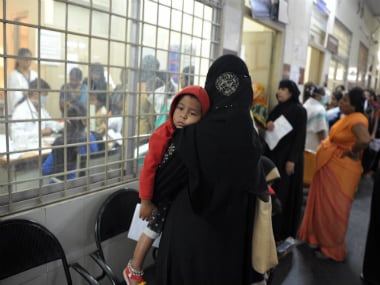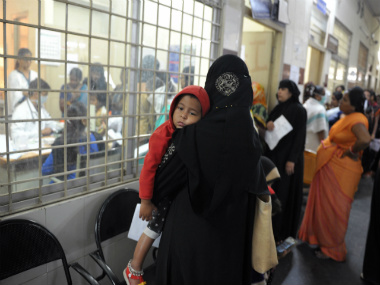More than 67,000 people across India have been diagnosed with dengue so far this year, reports by the National Vector Borne Disease Control Programme (NVBDCP) show. By mid-October, reports show, the disease had claimed 48 lives. Dengue is undoubtedly one of the biggest health concerns in India. NVBDCP data reveal that over one lakh people were diagnosed and an estimated 172 died from dengue in 2018. Go farther back and NVBDCP data show that 2017 was an even worse year: 1.88 lakh people diagnosed with dengue and 325 dead. [caption id=“attachment_7543621” align=“alignleft” width=“380”]  Representational image. Image source: Getty Images.[/caption] Experts say that the hot and humid climate of the country is favourable to the growth of the Aedes aegypti mosquito - the vector or carrier of the dengue virus. To be sure, flooding and poor sanitation in parts of Bihar and Maharashtra this year have also increased breeding grounds for the mosquito larvae, worsening the overall situation. While Central and state governments keep a check on mosquito breeding grounds and work on improving the treatment and diagnosis of the disease, you too can do some things to reduce the health risk to you and your family. What you need to know about dengue Dengue is a viral disease spread through the bite of Aedes aegypti mosquito. The mosquito usually bites during the day and breeds in clean water. It thrives in hot and humid conditions. Symptoms like fever, headache, muscle and joint pain, rashes and pain behind eyes can show up 3 to 14 days after getting the infection. Once the fever subsides, some people go on to develop dengue hemorrhagic fever (DHF). DHF is a severe and life-threatening condition. Symptoms include abdominal pain, vomiting, and bleeding along with low platelet count (thrombocytopenia). In severe cases, the person may also experience mental confusion, swelling of the liver and circulatory system failure. There is no vaccine for dengue. Prevention only includes avoiding mosquito bites and keeping the vectors from breeding. Blood tests for dengue measure for three things. The NS1 antigen test, done within one week from when a patient starts showing symptoms, looks for the dengue virus itself. Our immune system forms antibodies to fight the dengue infection - these antibodies start showing up in the blood test from the second week. The third, and perhaps best known, test for dengue measures platelet count - it is usually done in the third week from the onset of the illness. Prevention of dengue The National Health Portal of India lists the following steps to prevent the spread of dengue:
- Aedes mosquito breeds in standing water. Keep your surroundings clean and avoid waterlogging.
- Change the water from your coolers, drums, buckets, and flower vases at least once a week.
- Cover all the water containers properly.
- Use mosquito repellents or nets to avoid mosquito bites. Use a DEET-based repellant if you have to go to an endemic area - an area where the disease is more prevalent.
- You can also use window screens to keep the dengue mosquito from entering your home.
- Wear clothes that cover your entire body when you go outside. Examples include long-sleeved shirts and long trousers.
- For drinking water, chemical larvicides such as Temephos can be used.
- Regular fogging with pesticide sprays is effective in controlling the mosquito population. Larvicidal bacteria such as Bacillus thuringiensis (Bt)and larvicidal fish like gambusia are also an option.
- Dengue patients should also stay in mosquito nets during the first week to avoid giving the disease to loved ones.
Health articles in Firstpost are written by myUpchar.com, India’s first and biggest resource for verified medical information. At myUpchar, researchers and journalists work with doctors to bring you information on all things health. For more information, please read our article on Dengue: Symptoms, Test and Prevention_._


)

)
)
)
)
)
)
)
)



